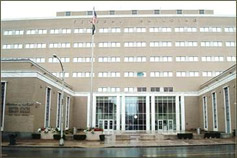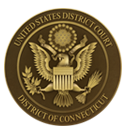United States District Judge for the District of Connecticut
Staff Information

ABRAHAM RIBICOFF FEDERAL BUILDING
United States Courthouse
450 Main Street
Hartford, Connecticut 06103
Law Clerk Hiring
Judge Oliver accepts law clerk applications through OSCAR. Judge Oliver has completed hiring for the 2025, 2026, and 2027 terms. Judge Oliver intends to accept clerkship applications in the summer of 2026 for the 2028-2029 term.
Law Student Intern Hiring
Judge Oliver is accepting applications for law student interns for Summer 2026. Interested applicants should submit a cover letter, resume, writing sample (no longer than ten pages), 2-3 references, and law school transcript with at least one semester of grades to VDO_chambers@ctd.uscourts.gov. Interns are expected to work full-time (40 hours per week) for a period of at least eight weeks. The internship start and end dates are to be determined by Judge Oliver. The deadline to apply is February 1, 2026.
Judge Oliver will also participate in the 2026 Just the Beginning Summer Judicial Internship Diversity Project.
Due to the volume of applications, Chambers staff cannot reply to or provide a status update for each application. Selected applicants will be contacted for interviews in early 2026.
